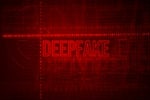Scientists brew “quantum ink” to power next-gen night vision
Toxic metals are pushing infrared detector makers into a corner, but NYU Tandon researchers have developed a cleaner solution using colloidal quantum dots. These detectors are made like “inks,” allowing scalable, low-cost production while showing impressive infrared sensitivity. Combined with transparent electrodes, the innovation tackles major barriers in imaging systems and could bring infrared technology to cars, medicine, and consumer devices.
Read more

